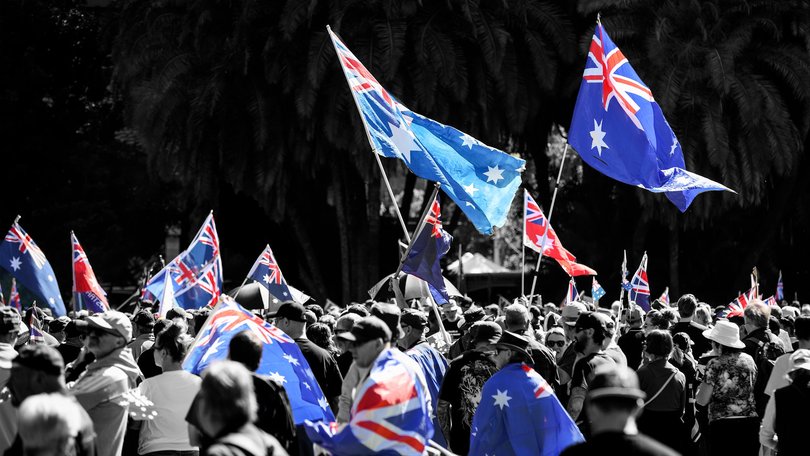Australians ‘too polite’ to blame immigration for housing shortages: population expert
Australians are too polite to blame migrants for housing shortages, a top population expert said after the Government’s statistics agency published a private poll recording overwhelming support for immigration.

Australians are too polite to blame migrants for housing shortages, a top population expert said after the Government’s statistics agency published a private poll recording overwhelming support for immigration.
As a debate rages over the appropriate level of immigration, the Australian Bureau of Statistics this week cited a Mapping Social Cohesion Report, funded by the Scanlon Foundation Research Institute, which reported 71 per cent of people in 2024 supported the proposition that immigrants from different countries strengthen Australia. While high, the figure in 2023 was 78 per cent.
Bob Birrell, president of The Australian Population Research Institute (TAPRI), said many Australians, including well-established migrants, thought immigration levels were too high, despite what that poll said.
Sign up to The Nightly's newsletters.
Get the first look at the digital newspaper, curated daily stories and breaking headlines delivered to your inbox.
By continuing you agree to our Terms and Privacy Policy.“The poll that the ABS cited, it’s really just probing Australians’ politeness,” he told The Nightly. “Most people are not prepared to say outright that migrants are a problem but when we ask them in our survey whether they are in favour of more diversity or not, the great majority of voters - including most well-established migrants - say they’re opposed to that.
“The concerns are very evident. Most voters could see the connection between high levels of immigration and housing unaffordability.”
Thousands of people protested in major cities two weeks ago against high immigration. Immigration advocates have argued that some of the criticism is driven by racism and that immigrants fill jobs that Australians won’t do, and bring in capital that drives economic growth.
The ABS noted that “cultural diversity is one of the greatest assets of Australian society”. “Ongoing acceptance of multiculturalism and immigrants from a diverse range of countries is a key indicator of cohesion, helping protect our society from social divisions,” it said.
‘Intake too high’
Other polls have recorded less support for immigration. A TAPRI poll recorded that 67 per cent of respondents disagreed with the idea that Australia needed to boost immigration “to increase our ethnic and other forms of diversity”.
A Lowy Institute poll in June found 53 per cent believed the number of migrants is too high, compared with 38 per cent who thought it was about right and seven per cent who regarded it as too low.
The fall in support for immigration occurred as net overseas migration fell from a record high of 548,800 in the year to September, 2023, to 340,800 by the end of last year.
The migration intake includes permanent arrivals, such as skilled migrants and the long-term influx, which covers international students.
The Scanlon Foundation survey said those who thought immigration was too high generally supported multiculturalism, with 82 per cent overall supporting the suggestion that migrants are good for the economy.
“Growing belief that immigration is too high is most strongly related to economic and housing issues, rather than attitudes to diversity, multiculturalism and migrants,” it said. “Most people who think immigration is too high also value the benefits of multiculturalism and the contribution of migrants to Australian society, culture and the economy.”
Housing crisis
A big population influx is making life harder for renters. The national vacancy rate remained tight at 1.2 per cent in August, SQM Research data showed.
While the Federal Government collects more income tax revenue from the influx of skilled migrants, State governments are responsible for housing policy.
In NSW today the Government introduced changes to planning rules to fast-track new housing and override local councils.
“We lose twice as many young people as we gain,” Premier Chris Minns said. “We’re now losing our best and our brightest young people. The ones we want to have join the New South Wales public education system, become police officers, start their own businesses, become entrepreneurs.”
NSW is required to build 377,000 homes over the five years to June 2029 under a National Housing Accord plan for 1.2 million new homes.
Governments from both sides of politics have been increasingly relying on the working-age population for income taxes with fertility levels continuing to fall in recent decades, leading to bigger intakes of skilled migrants.
Personal income taxes make up the majority of Commonwealth revenue with Treasury’s Budget paper expecting $349.7 billion to be raised in 2025-26 from taxing individuals, from the $676.1 billion pool of taxation receipts.

